As our collective stress and anxiety has reached an unexpected high due to the Coronavirus pandemic, mindfulness practice can actually enable us to cope with it. It can also help us improve our mental health and live more mindfully.
“You don’t know who you are until you’ve faced real adversity.” ~ Dan Gasby
The COVID-19 pandemic is presenting many of us with one of the greatest challenges of our lives. While it may be difficult for some of us to deal with, it is during these times that we can learn the most about ourselves, and life in general.
This is a great opportunity to learn some important lessons. Broadly speaking, I think we can learn a balance between independence and interdependence. That is, there are times when we need to take responsibility for our own well-being, and other times when we need to turn to others for help, or when we depend on them and don’t fully realize it.
I also think we can learn some lessons about life in general. There are some subjects we try to avoid thinking about, such as our own mortality, and that of our loved ones. This pandemic is forcing us to confront these issues head-on. Looking at them in a different way may bring us some peace and acceptance.
Independence
1. How to Enjoy Life Without Spending Lots of Money
We all like to enjoy life. If we can afford it, we like to travel, eat out, and go out for entertainment. For many of us, enjoying life means spending money. However, under the stay-at-home guidelines, we’re not able to do any of these things. We’re stuck at home trying to figure out how to keep ourselves from getting bored.
There are many things we can do to enjoy our lives without spending a lot of money. The greatest obstacle to doing this is our frame of mind. We think, either consciously or unconsciously, that we need to spend money in order to be happy. The problem with this way of thinking is that our happiness depends on our finances, which can run out.
One way to overcome this way of thinking is to explore your interests. What do you like to do? Maybe you like learning something new, like another language. If you’re stuck at home, you can read, listen to a podcast, or take an online course. Maybe you have an interest that you can turn into a hobby, such as gardening, sewing, or knitting.
If you’re feeling adventurous, you can take up some form of art, such as music, painting, or writing. Here the goal isn’t necessarily to become an artist, but rather to do something that helps you express yourself, and bring you some form of satisfaction.
Read also: Can Saving Money Make You Happier?
2. How to Live on a Smaller Budget
Some of us may have been hit hard financially. You may have lost your job, and savings are running low. If this is the case with you, there is some good news. You can live on a much smaller budget than you’re used to.
One of the areas where we can save money is on food. You don’t necessarily need to go to a fancy restaurant to eat good food. There are many easy and delicious dishes you can make that are not hard on your budget. What I do is a search on Google for just about any recipe I want. I usually search for “easy __ recipe.”
You can also save money on simple home repairs. I’ve never in my life worked in construction or remodeling, but I’ve learned to make various repairs that don’t take a lot of skill, such as fixing a leaky faucet, changing a lock, replacing blinds, and more. My next project is repairing the vinyl siding on our house that was damaged in a hailstorm.
YouTube has tutorials on just about anything you can think of. If you need to make a repair around the house, watch a couple of tutorials and see if it’s something you can handle. If it’s too complex, dangerous, or you need special equipment, then go to Yelp to find the top companies in your area that can do the work. I’ve found some great companies using this approach, because I can see their ratings and read their reviews.
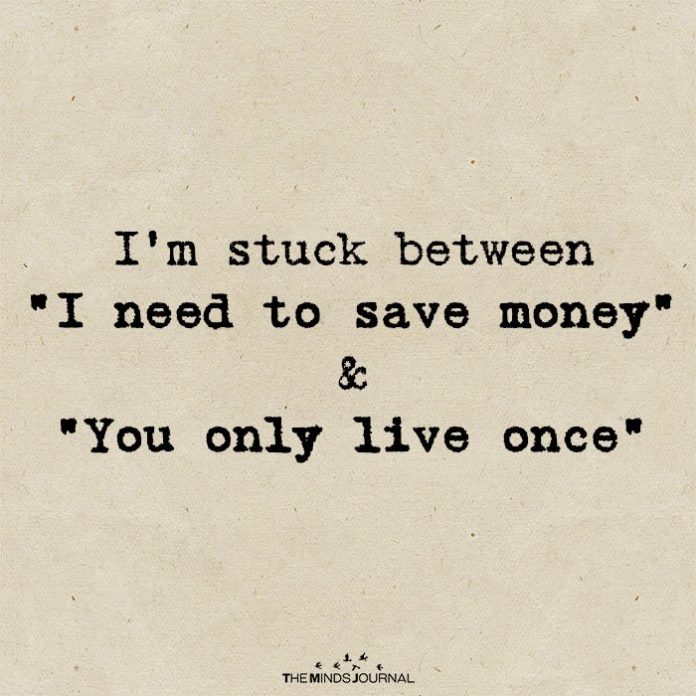
There is an added benefit to making some of these repairs yourself and/or involving the family. These are valuable skills to have in life, so that you’re not totally helpless and dependent on others.
Read also: What is Minimalism and How It Can Make You Happier
3. Learn to Cook and Bake
Mary and I have been under self-quarantine since early March, and since she is in a high-risk category, we can’t go out to eat at our favorite restaurants. We particularly miss the Chinese buffet. What’s my solution? I learned to cook Chinese food. In fact, I’ve learned to cook various other ethnic dishes.
I’ve also learned how to bake new desserts, such as chocolate chip & sugar cookies, blueberry muffins. I already knew how to make a key lime pie, tres leches, flan, and a few others.
“You don’t need a silver fork to eat good food.”
~ Paul Prudhomme
The point is, we can eat just as well, if not better, right here at home. The added benefit to cooking and baking at home is that there are plenty of leftovers, especially desserts. I can’t just make two slices of pie; I have to make a whole pie. Actually, my key lime pie recipe makes two pies.
Now, I’m not a big fan of cooking like some people. I just love eating good food. Fortunately, I can eat all I want without gaining any weight. Actually, I eat fairly healthy and in moderation, and I also stay active. This helps keep me healthy, and at a normal weight.
My view is that cooking is a skill everyone should have. Otherwise, you’re completely dependent on someone else for your survival. When you know how to cook, you can eat great food any day of the week without the hassle or expense of going to a restaurant. My other motivation for learning how to cook was that being single most of my life I wanted to have a good home-cooked meal. And this made wherever I lived more like home.
Read also: 10+ Immunity Boosting Foods You Should Have More Often
4. Being with Ourselves
Many of us have active lives where we spend most of our time around other people. Most jobs require us to be around people all day long; then we have social activities; and then we spend time with our families.
If you’ve had to stay at home during the pandemic, then you’ve had to spend a lot more time by yourself, and this can be uncomfortable if you’re not used to it. The quiet and solitude can make us feel restless and lonely. We’re being forced to spend time with someone we may not know very well—ourselves. And if we don’t like ourselves very much, it is even worse.

This is an excellent opportunity to get to know yourself better. As I mentioned above, you can explore your interests, such as reading, hobbies, or some form of art. Who knows, you may find you enjoy cooking or baking.
You can also spend some quiet time with yourself, and get to know yourself on a deeper level. This is a great time to read your favorite self-help book. You may learn more about why you think the way you do, or what drives your emotions and actions. And of course, mindfulness practice and meditation can help you significantly in this area.
Interdependence
5. Relationships: How to Get Along Better
The pandemic has forced us to spend a lot more time with our loved ones. This can go one of two ways; we can either get on each other’s nerves, or we can learn how to get along better. I’ve chosen the latter.
If you’re young, you may not yet have come to the full realization that our loved ones will some day pass on. For those of us who are older, we begin losing our parents, siblings, and maybe even our spouse. When we lose people close to us, we often think about how we should have spent more quality time with them. But by then it’s too late. So, why not take this opportunity to enjoy this extra time together, instead of trying to avoid each other?
Having good relationships with loved ones takes effort, especially if some are rather difficult to get along with. One of the things I learned from Thich Nhat Hanh that has always stuck with me is to touch the seeds of joy and goodness in other people.
“When your heart has room for everybody then your heart is full of love.”
~ Fred Rogers
You know your loved ones well enough to know what they like. Maybe they like engaging in pleasant conversations about a particular subject, or engaging in an activity. Mary and I like talking about a variety of different subjects such as cooking. Mary has been an excellent cook all her life, and she helps me in my cooking endeavors.
Mary and I also like playing with our kitty cats. Molly and Mr. Tibbs bring us so much love and joy. We also like to laugh, and have made it a point to be more affectionate toward each other.
Two practices that can significantly improve your relationships are deep listening and mindful speech. Deep listening is simple. Just focus your complete attention to your loved one when he/she is speaking to you. People really appreciate it when you truly listen to them, instead of letting your mind wander off.
To practice mindful speech, take a few moments to think about what you want to say to your loved one, and how you want to say it. We usually say the first thing that pops into our minds without giving any thought about the impact our words will have. Instead, choose words that are loving, and will cultivate peace and joy.
Read also: 5 Ways You Can Keep Your Relationship Strong During Coronavirus Isolation
“The more grateful I am, the more beauty I see.” ~ Mary Davis
Your loved ones can be a great source of love and fulfillment. So be grateful for them being in your life, and make an effort to spend more quality time with them. Remember, they won’t be around forever.
6. How to Handle a Crisis: Being Part of the Solution
The COVID-19 pandemic is a crisis like most of us have never seen before, so we’re not sure how to react. Even the experts didn’t know initially what we were dealing with, so they couldn’t give us 100% reliable advice.
As with most crises, the first thing we need to do is stay calm. It doesn’t do us any good if we panic and aren’t able to think straight. This is another area where the mindfulness practice can help. If you meditate regularly, you are more likely to remain calm under most circumstances.
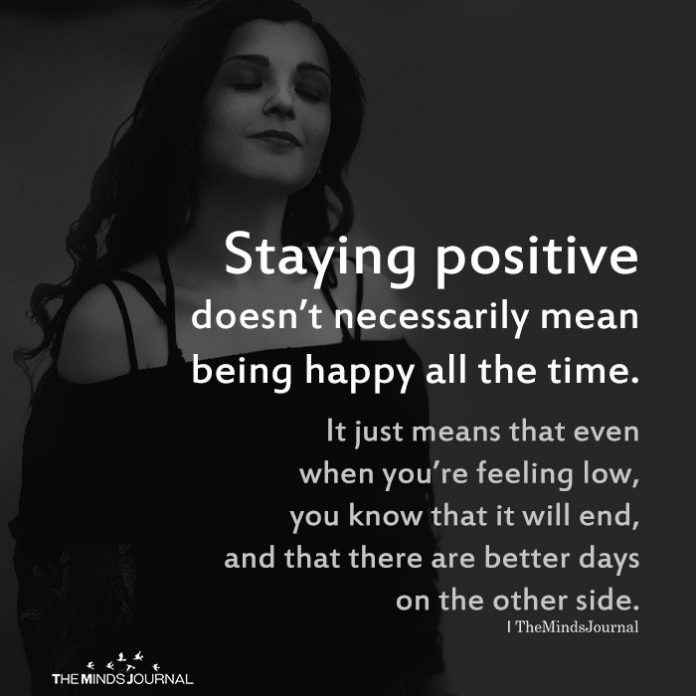
Next, be part of the solution, and not the problem. Some people are paralyzed by their fears, and either take no action, or make things worse. In order to deal with a crisis effectively, you need to understand it as best as you can, and then determine what measures to take to deal with it as well as possible. Here’s how I dealt with the pandemic:
When I first realized there was a virus spreading in the U.S., and how potentially dangerous it was, I initiated a self-quarantine for Mary and I. Remember, Mary is in a high risk category, so I had to take strong measures to protect her. If she were to catch the virus, it would most likely be fatal.
Read also: 6 Ways To Build Emotional Resilience and become Unfuckwithable
I go to the grocery store once a week, where I wear a mask and disinfect all the merchandise that comes into the house. Since some items are in short supply, I buy enough to last at least 2-3 weeks, but I don’t hoard. When I get home, I change my clothes, and take a shower.
The idea is to reduce the chances of us catching the virus to just about zero. This may be excessive, but considering what is at risk, I would rather be safe than sorry.
7. Practicing Love and Compassion
This pandemic has affected some people more than others. Mary and I are pretty safe. Our income has remained stable, and we have everything we need. However, some people aren’t as lucky. They’ve lost their jobs, and have large families to feed. It is even worse for people who have caught the virus or have lost a loved one.
With all the heartache this pandemic has caused, this is a good time to practice more love and compassion. There are many ways we can put love and compassion into action. Some people might need help with getting their basic needs met, such as food and medicine, especially older people who live alone.
Some people may simply need more social interaction. We can still interact with each other while keeping a safe distance. I’ve made it a point to chat with my neighbors whenever I see them. It’s amazing how friendly they’ve become during this pandemic. I also participate in a weekly online meditation meeting.
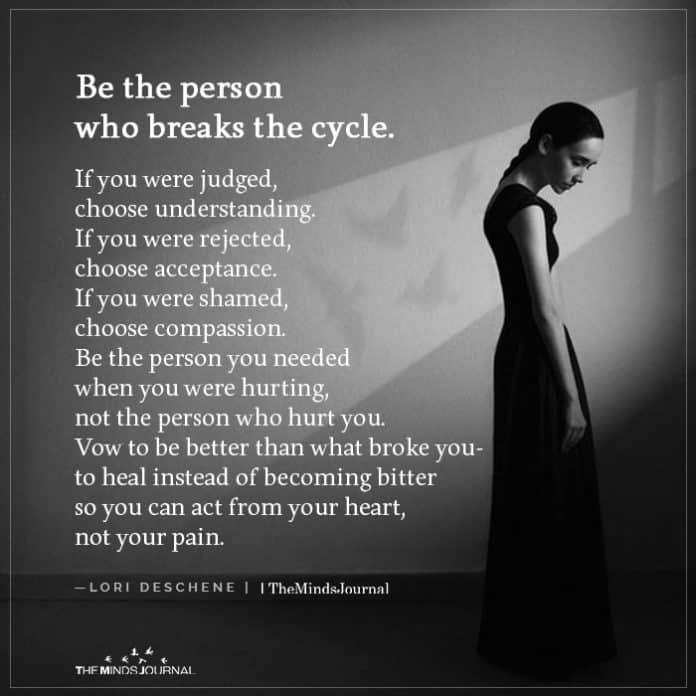
There are a variety of different ways you can help others, especially if you’re at low risk of having a severe reaction to the virus. Each of us can help others, even if it’s by just bringing a smile to someone’s face. This can help more than you might think. You never know if someone may be having a difficult time coping with this crisis.
Read also: How Showing Compassion And Kindness Is Good For Your Mental Health
8. Interconnectedness
Although we’ve been forced to stay separate, we still need each other. In fact, we need more people than we realized before. Think for a moment about all the things you buy at the grocery store. With each item, there are many different people involved in making them available to us.
For example, take a look at the lettuce you purchased. A different person was involved in supplying the seeds to plant, prepare the soil, to plant the seeds, water the lettuce; then harvest, package, transport, stock shelves, and receive our payment. And this is just for the lettuce.
If we think about it, it’s not too difficult to see how we are all interconnected and depend on each other in some way. Even people that we don’t have direct contact with play an important part in our economy, which we are all dependent upon. This crisis is helping us see more clearly how the world works, and helping us gain a greater appreciation for all the people in it.
Read also: 21 Simple Ways To Build Emotional Connection With Someone
Life Lessons
9. What’s Really Important in Life
Most of us go through our lives not thinking of what’s really important. We get caught up in the daily grind and lose sight of the bigger picture. This usually happens when we’re younger, and trying to build a career and a family. But as we get older, our perspective on life changes.
As we get older, we begin to see the things we cherish slip away. Our children move away, our parents get old and pass on, and our own health begins to decline. These changes force us to reexamine what is really important in our lives.
The COVID-19 pandemic is having the same effect on many of us. Whenever our lives are truly threatened, it forces us to think about our own mortality, and of those we love. Impermanence becomes a reality, and not just a concept.
I think what this pandemic can teach us is that life is both a miracle, and at the same time fragile. It is a miracle in the sense that it is so complex. I think it is quite fascinating that all forms of life are unique, and have the ability to survive for long periods even during adverse conditions.
It seems the more I observe animals, the more beauty I see in them. There is an innocence about them, and an ability to express love for their own, and other species, that makes me truly appreciate them.
“The miracle of life is enough for me to believe in miracles.” ~ Anthony D. Williams
While all life forms have a strong instinct for survival, they are also quite fragile. Life can be lost at any time, as some of us are sadly realizing during this pandemic. There are some things in life that we cannot beat, at least not at an individual level. This is why it’s so important to be mindful of our health and to be grateful for all the blessings in our life.
Read also: 12 Signs You’re In The Middle Of An Important Life Change
10. Being Mindful of Our Health
In the past, most of us have not had a good understanding about health and nutrition. This is something we learned a little about in the course of our education. We may have been required to take a health class at some time or another. And that’s been about the extent of it.
Today, with the growth of the Internet, there is a wealth of information available to us on health and nutrition. If we have an ailment, we can often find articles about it, and become more informed, so we can have a more intelligent discussion with our healthcare professionals. This is beneficial to both us and them: we get better care, and their jobs become easier.
While there is much information about health and nutrition available to us, not everyone makes good use of it. Some of us still place too much faith in doctors. Keep in mind that medicine is not always an exact science. Doctors don’t know everything. They can only make judgments based on the information we give them. And we don’t always give them all the relevant information. That’s because we don’t always know what is relevant. This is where mindfulness practice can help.
Read also: 7 Daily Habits To Help You Practice Mindfulness Effectively
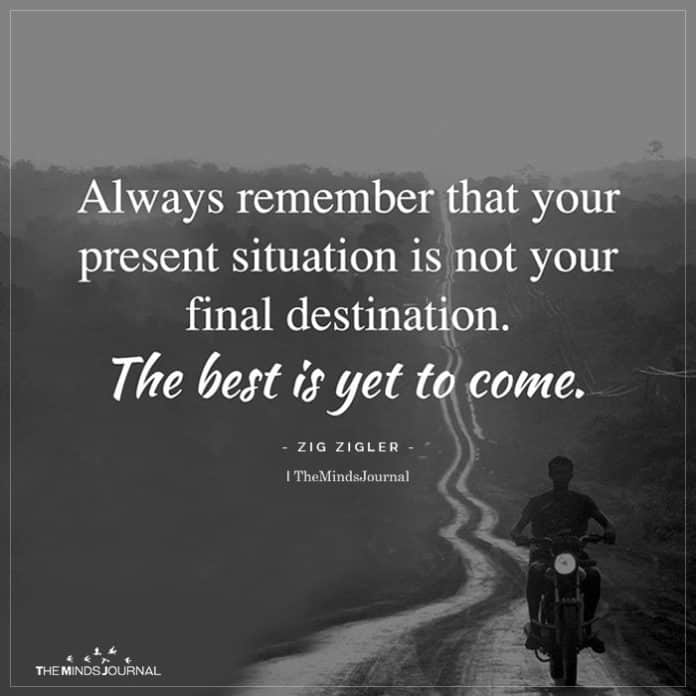
You can live a longer and healthier life if you are more mindful of your health. In order to do this, you need to first focus your attention on your health. It certainly helps if you learn some of the basics of health and nutrition. Then pay close attention to what is happening in your body, and try to determine how your nutrition and activities are causing specific ailments.
Remember that mindfulness practice is about paying attention to what is happening in the present moment. If you direct your attention to your body, you will gain a better understanding of how to preserve your good health. This is something you will appreciate more as you get older.
11. How to Remain Peaceful During Difficult Times
It’s real easy to stay calm when things are going well, but it can be a big challenge when there is a crisis, especially if our health, or that of a loved one, is threatened. What makes it so difficult to stay calm during a health crisis is that our life is threatened, and we may feel powerless to do anything about it. I approach the problem from three different angles:
Protect my health as best as possible. I’ve been pretty health conscious most of my life, but not to any extreme. I’ve learned to eat healthy, while at the same time enjoying my food. Since I stay physically active, I can eat just about anything I want—in moderation. I also don’t abuse my body with foods, substances, or activities that are harmful. I intend to prolong my life and good health as much as possible. Remember, we have a great deal of control over our health.
I deal with my mortality ahead of time. I always try to remember that everything is impermanent. While I can prolong my good health for a long time, eventually I will get sick and die. That is inevitable, and the sooner I accept that, the easier it will be when the time comes. Actually, knowing that I will eventually die helps me appreciate every day that I am alive and healthy.
Read also: Can Mindfulness Meditation During Coronavirus Outbreak Keep You Safe?
“If you only walk on sunny days, you’ll never reach your destination.” ~ Paulo Coelho
I meditate regularly. Mindfulness practice and meditation helps me keep things in proper perspective. It helps me stay mindful of my health, and to stay mindful of my own impermanence. Meditating regularly also helps keep my emotions calm. That is, it keeps me from worrying so much. The key here is to meditate regularly. It’s much harder to start meditating when you’re in the middle of a crisis.
12. Dealing with Loss
Dealing with the loss of a loved one is probably one of the most difficult things in life. It is traumatic, and the grieving process usually takes a long time to run its course. Sometimes, we never fully heal from losing someone dear to us.
We all grieve differently. It all depends on our spiritual and emotional state when our loved one dies. It also depends on our relationship with the person. Were we close, or highly dependent on them? These are two factors that can make grieving harder.
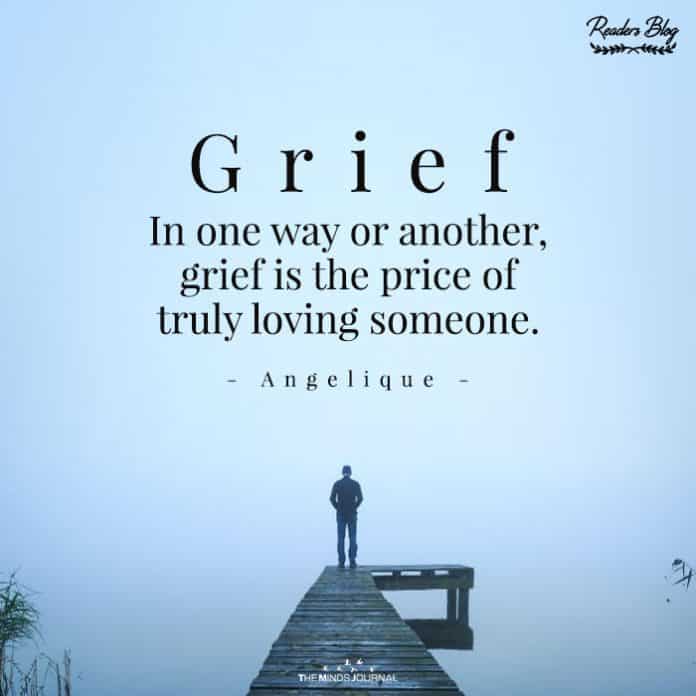
Many of us have a spiritual faith that can help us in the process. Though I don’t consider myself a religious person, I do respect and admire those who do depend on their faith to get them through difficult times. If you have a faith, then I suggest you turn to it when you lose a loved one.
Read also: The Stages Of Grief: Ways To Cope With Loss and Minimize The Pain
“When someone you love becomes a memory, the memory becomes a treasure.” ~ Unknown
If you don’t have a faith, then I suggest you find some support from either family, friends, or even a support group. When experiencing a loss, we certainly need some time alone to sort things out. However, if you isolate, it will take a much longer time to heal. We all need other people to help us get through difficult times. The idea is to find a balance between alone time, and time with others.
Since I’m not religious, I don’t have a belief of what happens to us after we die. I don’t know for certain, and it doesn’t bother me not knowing. However, I do see death as being one of two possible alternatives:
1) If we continue to exist after we die, we will be free of our body and mind, which are the sources of all our pain and suffering, or
2) if we don’t continue to exist, then we won’t be around to care. To me, this is a win-win situation.
One of the things that brings me comfort when losing loved ones is if they are at peace when they pass on. To me, that brings a sense of closure, and makes their passing easier to accept. Now, I certainly don’t have control over their acceptance of their death, but I can help them make sense of their transition, and bring them as much comfort and joy as possible in their remaining time.
Read also: How Mindfulness Can Help During Self Isolation When Feeling Anxious & Lonely
Final Thoughts
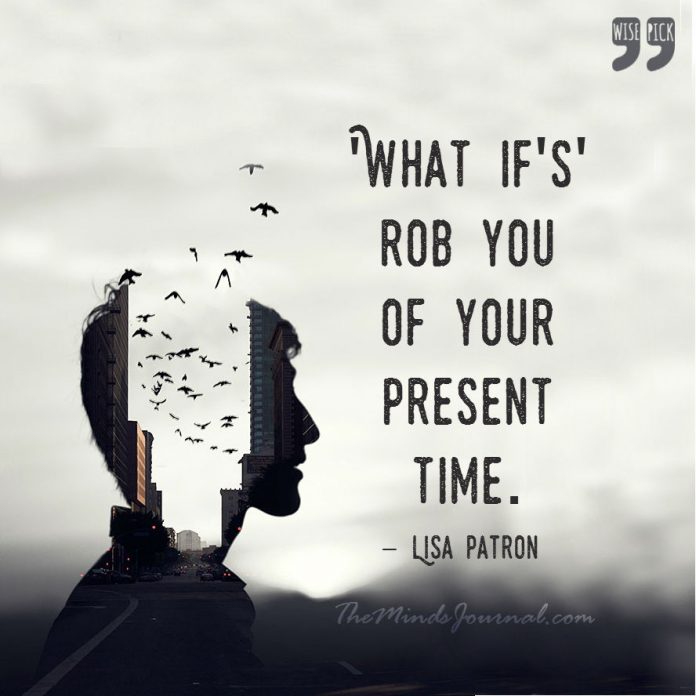
As I wrote this article, I realized that it is not up to me to tell you exactly which lessons you should learn from the coronavirus pandemic. Surely, some of you have already learned some of the lessons discussed above.
Each of us is at a different stage in life, and in our spiritual development. So, what you learn will depend on where you are on your life journey.
What I hope to have done is given you a few things to think about, as you try to survive one of the most difficult challenges of our lifetime. If you’ve learned an interesting lesson, please share it in the comments below. I would love to hear about it.
“God, grant me the serenity to accept the things I cannot change, the courage to change the things I can, and the wisdom to know the difference.” ~ Serenity Prayer
Written By Charles Francis
Originally Appeared On The Mindfulness Meditation Institute
It is highly likely that the COVID-19 pandemic can transform how we live and connect with each other beyond recognition. However, simply by bringing our attention to the present moment and being aware of our breath, we can learn to deal with stress and be more accepting of our reality.
Mindfulness practice can help us be more aware of our thoughts and emotions and help us realize the life lessons we are learning during this pandemic. So instead of allowing your mind to get hijacked, use mindfulness and meditation to live your best life even during the pandemic.
Read also: How To Find Happiness By Living In The Present Moment
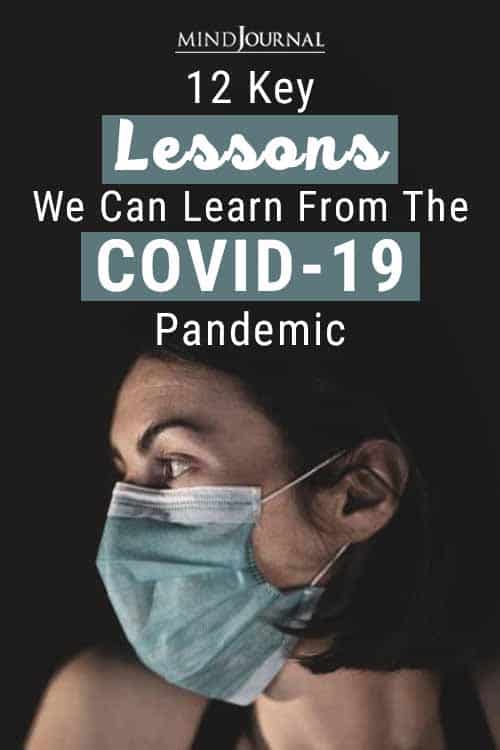









Leave a Reply